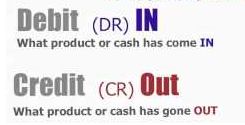Fritz Sybergs Vej 9
DK 8270 Hojbjerg
Scandinavia
info@dynamicbusinessplan.com


Financial Assessment
The owner of a company must constantly keep control of the company´s financial situation.
This is a routine beyond discussion, especially when considering winding-up.Is your company solvent?
Being solvent indicates that the value of a company´s assets exceeds its debt thus making it capable of "paying everyone his due".
Accounts wise this is the same as having a positive equity. Oppositely, a negative equity indicates that the company is insolvent.
On-going concern
Measured by their accounts many companies appear to be solvent. However, they may prove not to be when wound-up.
The equity value is based on valuation of the company´s assets and even cautious valuations may turn out to be inaccurate when the company is wound-up.
Especially the liquidation value of machinery, stocks, etc. can drop dramatically when sold off a company going out of business. The value of these assets are bigger when talking about an on-going concern. If rumours start that you are closing down the value drops very fast.

Debt remains the same
The debt, however, remains unchanged, it is not affected by the company´s continuance/discontinuance.
Thus, you must seek to make an assessment showing the company´s assets held against its debt, cautiously valuing the assets to an amount of money plausible to be fetched from winding up the company.
Are you personally solvent?
If your company is owned by you personally, it has no relevance whether a debt rests with your company or yourself. You are personally liable to the full extent of your assets - including your private assets - for the company´s debt.
Balancing the debt against the assets you must therefore include your personal assets in line with the company´s assets. Likewise, you must include your own as well as the company´s debt.
Limited companies
It is different for private and public limited companies. Here you must keep your private affairs out of the calculation and solely focus on the company´s assets and liabilities. You are not personally liable for the debt.
Nevertheless, you are probably still liable for the company´s bank debt, as most banks grant loans to private and public limited companies only against a personal guarantee.
Keep in charge
So, why at all bother whether your company is solvent or not?
If your company is solvent you are the one deciding when to shut down.
Oppositely, if your company is insolvent there is an imminent risk that somebody is going to lose money on the company and not all of the company´s creditors will be paid.
In such a situation you should contact a lawyer a.s.a.p. and get his/her
advice on what to do in order to avoid illegality.
Go to next
business issue: Bank Indebedness

Loosers makes excuses, winners makes progress.
- Brian Tracy, motivational speaker and author
























